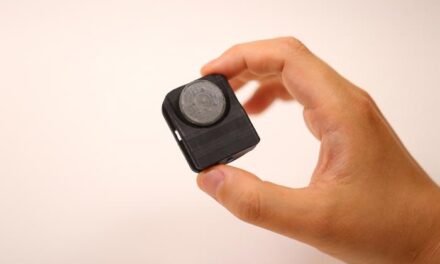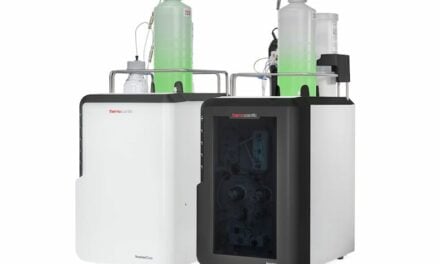New, smart contact lenses designed to detect glaucoma at its earliest stages have been developed for the benefit of optometrists, ophthalmologists, and their patients thanks to a startup that will commercialize the technology developed at Purdue University.
BVS Sight Inc., the company developing the technology, was created through a partnership between Boomerang Ventures Studio, Purdue Foundry and the Purdue Research Foundation Office of Technology Commercialization. The partnership develops Purdue-related healthcare startups and healthcare-related intellectual property yet to reach the market.
Developing New Technology
Chi Hwan Lee, the Leslie A. Geddes associate professor of biomedical engineering in Purdue’s Weldon School of Biomedical Engineering, led a research team that developed new ocular technology to continuously monitor intraocular pressure (IOP) in a person’s eye. IOP is the only known modifiable risk factor for glaucoma, which can steal a person’s vision without early warning signs or pain and affects more than 80 million people worldwide, according to the Glaucoma Research Foundation. Studies have suggested that IOP variability is associated with retinal structure damage that occurs in patients with glaucoma and that patients with greater IOP variability may be at higher risk for glaucoma progression.
Lee, who has worked on this technology for six years, specializes in sticktronics, which are stickerlike items that contain electronics or smart technology. His lab develops wearable biomedical devices that can continuously monitor chronic diseases or health conditions in an unobtrusive manner. Lee is BVS Sight’s co-founder and chief scientific officer. He has a joint appointment in Purdue’s School of Mechanical Engineering and courtesy appointments in the School of Materials Engineering and the Department of Speech, Language, and Hearing Sciences in Purdue’s College of Health and Human Sciences.
Some of the current wearable tonometers—or devices that measure the pressure inside one’s eyes—are equipped with an integrated circuit chip, which leads to increased lens thickness and stiffness compared to a typical commercial soft contact lens, in many cases causing discomfort for patients. Lee’s version is different.
“To address this unmet need, we developed a unique class of smart soft contact lenses built upon various commercial brands of soft contact lenses for continuous 24-hour IOP monitoring, even during sleep at home,” Lee says.
Smart Contact Lenses
“Our smart soft contact lenses retain the intrinsic lens features of lens power, biocompatibility, softness, transparency, wettability, oxygen transmissibility and overnight wearability. Having all these features at the same time is crucial to the success of translating the smart soft contact lenses into glaucoma care, but these features are lacking in current wearable ocular tonometers,” Lee says
Eric Beier, MD, MBA, partner and chief medical officer at Boomerang, says Lee and his smart contact lens innovation piqued his and his colleagues’ interest for several reasons.
“Our interviews with optometrists and ophthalmologists demonstrated that Lee’s technology has the potential to become a new standard of care for diagnosing and managing glaucoma patients,” Beier says. “Also, founder fit is an important factor for Boomerang in determining which technologies to commercialize. In working with Lee as we evaluated his technology, we determined that he is a great fit for Boomerang and our venture studio model. We also liked that Lee has been very forward-thinking in developing the technology by also developing a methodology to scale up the manufacturing of his smart contact lenses.”
Beier will be a director on BVS Sight’s board and continue to support the company through his chief medical officer and management roles at Boomerang Studio. He says BVS Sight must achieve several milestones to bring the smart contact lens technology to market.
“We need to optimize the integrated system for patient and clinician use: smart contact lenses, power source, eyeglasses, sleep mask and software,” Beier says. “Developing medical technologies is very complex, and the company will need to work through multiple challenges including clinical studies, regulatory approval, reimbursement and fundraising. These are all areas where Boomerang brings resources and expertise to help our portfolio companies successfully and timely navigate through these complexities.”
Beier says since the Purdue and Boomerang relationship began in 2021, Boomerang has reviewed several Purdue technologies.
“We look for technologies that meet our internal selection criteria, address important macro trends we see in health care, and clearly benefit patients and clinicians,” Beier says. “We also look for academic co-founders who are excited to work with us and enable us to leverage our business-building expertise and assets.”
Featured image: New smart soft contact lens technology developed by a multidisciplinary team of engineers and healthcare researchers at Purdue University and Indiana University School of Optometry looks to gather important intraocular pressure measurements for 24-hour cycles as a way to detect glaucoma. A company called BVS Sight Inc. has been launched to develop the technology. Photo: Purdue University photo/Rebecca McElhoe





